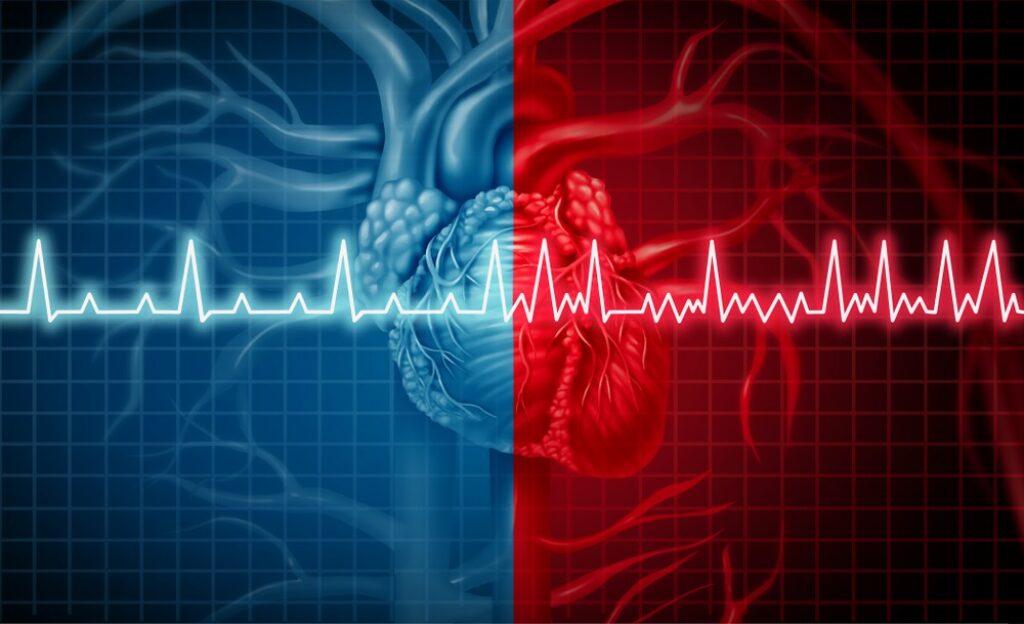
The Best Treatment Options for Atrial Fibrillation
Although all of our organs are absolutely vital for our bodies to stay alive and function, none of it would be possible without the incredible and powerful heart. It continually pumps and delivers oxygen and nutrient rich blood throughout the body. But sometimes, it doesn’t work properly.
Related Topics (Sponsored Ads):
Atrial Fibrillation (AFib) is a serious heart condition characterized by irregular and often rapid heart rate that can lead to various complications if left untreated. For this reason, it is crucial to gain a better understanding of its symptoms, diagnosis, and prognosis for effective management. Moreover, identifying the most suitable and effective treatment options as quickly as possible is essential for improving the quality of life of individuals with AFib.
This article will provide you with all you need to know regarding treatment options for Atrial Fibrillation, as well as its associated symptoms, diagnosis, prognosis, and other important info.

Symptoms of Atrial Fibrillation
The symptoms of AFib can vary from person to person, and may include palpitations, shortness of breath, weakness, fatigue, dizziness, and chest discomfort. Some patients may not experience any symptoms at all. It’s important to note that the severity of symptoms does not necessarily correlate with the severity of the condition, making proper diagnosis essential for effective treatment.
Diagnosis
AFib can be diagnosed through various tests including blood tests, electrocardiogram (ECG), Holter monitor, event recorder, implantable loop recorder, echocardiogram, exercise stress tests, and chest X-ray. These tests help healthcare providers assess the heart’s electrical activity, structure, and function to confirm the presence of AFib and determine the most suitable treatment approach.
Prognosis
The prognosis for individuals with AFib can vary depending on the severity of the condition, the presence of other medical conditions, and the effectiveness of the chosen treatment. While AFib itself is not typically life-threatening, it can lead to complications such as stroke, heart failure, and other heart-related complications if not managed properly. Therefore, timely and appropriate treatment is crucial for improving prognosis and reducing the risk of complications.
Treatment Options
1. Lifestyle Changes
Lifestyle modifications play a crucial role in managing AFib. These changes may include maintaining a healthy diet, engaging in regular physical activity, managing stress, limiting alcohol and caffeine intake, and quitting smoking.
These lifestyle adjustments can help control risk factors associated with AFib and improve overall heart health, making them an essential part of treatment.
2. Medications
Drugs are often used to manage AFib by controlling heart rate and rhythm and preventing blood clots. Common medications include beta-blockers, calcium channel blockers, digoxin, anti-arrhythmic drugs, and blood thinners.
These medications help regulate the heart’s electrical activity and reduce the risk of stroke and other complications associated with AFib, thereby improving the overall prognosis for individuals with this condition.
3. Electrical Cardioversion
In some cases, electrical cardioversion may be recommended to restore normal heart rhythm. This procedure involves delivering an electrical shock to the heart to reset its rhythm.
Following cardioversion, medications may be prescribed to help maintain normal heart rhythm and prevent future episodes of AFib.
4. Catheter Ablation
This is a minimally invasive procedure that involves guiding a catheter to the heart to correct the abnormal electrical signals causing AFib. This procedure aims to create scar tissue in the heart to block the abnormal electrical pathways, thereby restoring normal heart rhythm.
Catheter ablation has shown promising results in treating AFib and reducing the need for long-term medication.
5. Surgical Ablation
Also known as the Maze procedure, surgical ablation is a surgical intervention that aims to disrupt the abnormal electrical pathways in the heart by creating a series of controlled scar tissue.
This procedure is typically performed during other heart surgeries and can be effective in restoring normal heart rhythm for individuals with AFib.
Specialized Heart Devices
The following devices can help protect and boost normal heart function even further:
~ Implantable Devices
Implantable devices such as pacemakers and implantable cardioverter-defibrillators (ICDs), may be recommended for individuals with AFib, especially those at risk of dangerous arrhythmias.
These devices can help regulate the heart’s rhythm and provide life-saving interventions if abnormal heart rhythms occur, thereby improving prognosis and reducing the risk of complications.
~ Watchman Device
For individuals with AFib who are at risk of stroke and cannot tolerate long-term blood thinners, the Watchman device may be considered.
This device is implanted in the left atrial appendage to prevent blood clots from entering the bloodstream, reducing the risk of stroke while eliminating the need for long-term anticoagulant medication.
Consulting Healthcare Providers
It’s important to emphasize that the most suitable and effective treatment options for individuals with AFib can vary based on their specific medical history, the severity of their condition, and other individual factors. Therefore, consulting healthcare providers specialized in the management of AFib is essential for personalized treatment plans that address each patient’s unique needs and improve their overall prognosis.
Final Thoughts
Atrial Fibrillation is a complex heart condition that requires comprehensive management to improve prognosis and reduce the risk of complications. By incorporating all the aforementioned lifestyle changes, medications, and appropriate procedures, individuals with AFib can effectively manage their condition, reduce the severity of their symptoms and significantly improve their quality of life.
Additionally, never take any type of new medication or undergo any new form of treatment that you haven’t been prescribed to before, unless it is under the careful guidance of professional healthcare providers specialized in the management of AFib.




